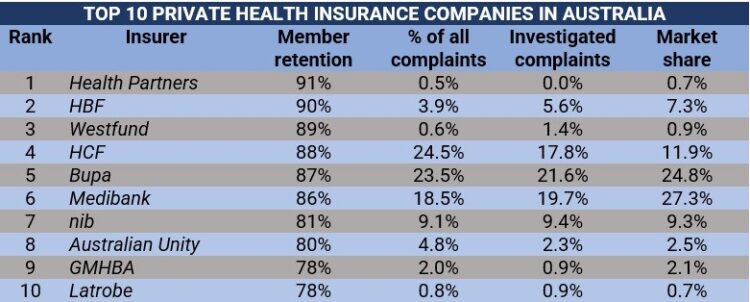
How does health insurance work in Australia? Navigating the Australian healthcare system can feel like a maze, especially when it comes to understanding the complex world of health insurance. With two main pillars – Medicare, the public health insurance scheme, and private health insurance – Australians have a range of options to access healthcare. This guide will delve into the intricacies of both systems, providing a comprehensive overview of how they function, their benefits, and the factors to consider when making choices about your health coverage.
The Australian healthcare system is a unique blend of public and private insurance, aiming to provide accessible and affordable healthcare for all citizens. Medicare, the publicly funded system, offers essential healthcare services, while private health insurance provides supplementary coverage for a wider range of treatments and services. Understanding the interplay between these two systems is crucial for making informed decisions about your health and financial well-being.
Medicare
Medicare is Australia’s universal healthcare system, providing essential medical services to all Australian citizens and permanent residents. It is funded through taxes and is managed by the Australian Government.
Eligibility for Medicare
To be eligible for Medicare, you must be an Australian citizen, permanent resident, or a holder of a special category visa. There are also eligibility requirements for temporary residents, such as those on a working holiday visa or student visa.
Benefits Covered by Medicare
Medicare covers a wide range of essential medical services, including:
Hospital Services
- Public hospital care, including inpatient and outpatient services.
- Surgery and other medical procedures.
- Emergency care and ambulance services.
Medicare covers the cost of hospital services, but you may still need to pay a small co-payment for some services.
Medical Services
- Consultations with doctors and specialists.
- Diagnostic tests, such as blood tests and x-rays.
- Some prescribed medications, including essential medicines.
Medicare covers a portion of the cost of medical services, and you may need to pay a gap fee to your doctor or specialist.
Limitations of Medicare Coverage
Medicare does not cover all medical expenses. There are some services and treatments that are not covered by Medicare, such as:
- Dental care, except for some services for children under 18.
- Physiotherapy and other allied health services.
- Some medications, including those that are not considered essential.
- Cosmetic surgery and other elective procedures.
Out-of-Pocket Expenses
You may need to pay out-of-pocket expenses for some medical services, even if you have Medicare. These expenses can include:
- Gap fees, which are the difference between the Medicare rebate and the doctor’s fee.
- Co-payments for some hospital services.
- The cost of services that are not covered by Medicare.
Private Health Insurance in Australia
Private health insurance provides Australians with additional coverage beyond Medicare, offering access to a wider range of healthcare services and benefits. It’s a voluntary system, meaning individuals choose whether or not to purchase private health insurance.
Types of Private Health Insurance
Private health insurance in Australia is broadly categorized into three main types: hospital cover, extras cover, and combined cover.
- Hospital Cover: This type of insurance covers the costs associated with hospital stays, including surgery, accommodation, and medical care. It can be tailored to specific needs, with options for public or private hospitals, and specific procedures like heart surgery or joint replacements.
- Extras Cover: Extras cover provides reimbursement for a range of healthcare services not covered by Medicare, such as dental, physiotherapy, optical, and chiropractor services. This type of insurance is often referred to as “out-of-hospital” cover. It can be purchased separately or as part of a combined policy.
- Combined Cover: This type of insurance combines both hospital and extras cover into a single policy. It offers comprehensive coverage for both hospital and out-of-hospital expenses. It can be a convenient option for individuals seeking a complete healthcare solution.
Factors Influencing Private Health Insurance Premiums
Several factors influence the cost of private health insurance premiums.
- Age: Premiums generally increase with age as older individuals are more likely to require healthcare services.
- Location: Premiums can vary depending on the location of residence, with higher premiums typically charged in metropolitan areas due to higher healthcare costs.
- Health Status: Individuals with pre-existing medical conditions may face higher premiums as they are considered a higher risk.
- Level of Cover: The type and level of coverage chosen will impact the premium cost. Higher levels of cover, such as comprehensive hospital and extras cover, will generally result in higher premiums.
- Family Size: Premiums may increase with the number of family members covered under the policy.
- Claims History: Individuals with a history of frequent claims may face higher premiums due to their increased risk profile.
Benefits Offered by Private Health Insurance Providers
Private health insurance providers offer a wide range of benefits, which can vary significantly depending on the provider and the policy chosen.
- Access to Private Hospitals: Private health insurance allows individuals to choose private hospitals for treatment, often with shorter waiting times and more comfortable facilities.
- Choice of Specialists: Individuals can choose their preferred specialists without restrictions imposed by Medicare.
- Private Room Accommodation: Private health insurance often provides access to private rooms during hospital stays, offering more privacy and comfort.
- Faster Treatment: Private health insurance can often lead to faster treatment times, as individuals can access services without waiting lists associated with public hospitals.
- Dental and Optical Coverage: Many private health insurance policies include extras cover for dental and optical services, helping individuals manage these expenses.
- Other Health Services: Some policies offer coverage for a range of other health services, such as physiotherapy, chiropractor, and psychology services.
Choosing the Right Health Insurance

Choosing the right health insurance policy in Australia is crucial for ensuring you have adequate coverage when you need it most. With various options available, it’s essential to consider your individual needs, budget, and coverage priorities to make an informed decision.
Factors to Consider
Before diving into specific policies, it’s important to assess your personal circumstances and prioritize your needs.
- Your health and lifestyle: Do you have any pre-existing conditions? Are you prone to specific health issues? Do you engage in high-risk activities? These factors will influence the level of coverage you require.
- Your budget: Health insurance premiums vary widely depending on the level of coverage, age, and other factors. Determine a budget that fits your financial situation and prioritize essential coverage within that range.
- Your coverage priorities: Do you need comprehensive coverage for all medical expenses, or are you primarily concerned with specific services like dental or optical? Identify your top priorities and choose a policy that aligns with them.
Comparing Policies
Once you’ve established your needs and priorities, you can start comparing different policies.
- Use comparison websites: Several online platforms allow you to compare premiums and coverage from various insurers side-by-side. This provides a quick and convenient way to identify potential options that match your criteria.
- Read the PDS: The Product Disclosure Statement (PDS) Artikels the policy’s terms and conditions, including exclusions, waiting periods, and benefits. Carefully review this document to understand the full scope of coverage and potential limitations.
- Consider extras coverage: Some policies offer additional benefits beyond basic hospital and medical coverage, such as dental, optical, and physiotherapy. Evaluate whether these extras are valuable to you and align with your budget.
Seeking Professional Advice
While comparing policies online is helpful, seeking advice from a health insurance broker or financial advisor can provide valuable insights and personalized guidance.
- Brokers have access to multiple insurers: They can compare policies from various providers and present options tailored to your specific needs and budget.
- Advisors offer unbiased advice: They prioritize your best interests and can guide you through complex policy features and explain potential implications.
- They can help you navigate the claims process: If you need to make a claim, a broker or advisor can assist you in understanding the process and ensuring your claim is processed smoothly.
Making Claims and Managing Your Policy

Once you have health insurance, you’ll need to know how to make a claim when you need to use it. It’s also important to understand how to manage your policy, including making changes, paying premiums, and accessing online account features.
Submitting Claims, How does health insurance work in australia
Submitting a claim with your health insurance provider is usually a straightforward process. Here’s a general overview:
- Gather necessary information: You’ll need to provide your policy details, the date of service, the provider’s details, and a description of the service.
- Choose a method: You can typically submit claims online, by phone, or in person. Online portals are usually the quickest and most convenient option.
- Check your claim status: You can usually track the status of your claim online or by phone.
Managing Your Policy
Managing your health insurance policy involves several key aspects:
- Changing your cover: You can adjust your policy to meet your changing needs. This might involve adding or removing cover for certain services, increasing or decreasing your level of cover, or changing your policy to a different type of health insurance.
- Paying premiums: Your premiums are the regular payments you make for your health insurance. You can usually pay your premiums online, by phone, or by mail.
- Accessing online account features: Most health insurance providers offer online accounts where you can manage your policy, view your claims history, and access other features.
Government Assistance and Subsidies

The Australian government recognizes the importance of affordable healthcare and offers financial assistance programs to help individuals and families cover the cost of private health insurance. These programs aim to make private health insurance more accessible, particularly for those with lower incomes or specific circumstances.
Eligibility Criteria and Application Process
To be eligible for government assistance, individuals must meet certain criteria, which typically involve income thresholds, age, and health status. The specific requirements may vary depending on the type of assistance program. For example, the Medicare Levy Surcharge applies to individuals with higher incomes who choose not to have private health insurance. The Private Health Insurance Rebate is available to individuals and families who hold a private health insurance policy and meet specific income requirements.
To apply for government assistance, individuals generally need to complete an application form, which may be available online or through the relevant government agency. They may need to provide supporting documentation, such as income statements or medical records, to verify their eligibility.
Impact of Subsidies on Private Health Insurance Costs
Government subsidies can significantly reduce the cost of private health insurance for eligible individuals and families. These subsidies are typically provided as a rebate on premiums, effectively lowering the overall cost of the policy. For example, the Private Health Insurance Rebate can provide a substantial reduction in premiums, making private health insurance more affordable for those who qualify.
The impact of subsidies can vary depending on the type of policy and the individual’s circumstances. However, the government’s commitment to providing assistance has made private health insurance more accessible to a wider range of Australians.
Future Trends in Australian Health Insurance: How Does Health Insurance Work In Australia
The Australian health insurance landscape is constantly evolving, driven by technological advancements, shifting healthcare needs, and evolving government policies. These trends will continue to shape the future of health insurance in Australia, impacting both Medicare and private health insurance.
The Rise of Telehealth and Digital Health
The COVID-19 pandemic accelerated the adoption of telehealth and digital health solutions in Australia. This trend is expected to continue, with more Australians utilizing virtual consultations, online health monitoring tools, and remote healthcare services.
- Telehealth offers convenience, accessibility, and cost-effectiveness for patients, especially those in remote areas or with mobility limitations.
- Digital health platforms allow for personalized health management, including tracking health data, receiving reminders for appointments and medications, and accessing online health resources.
- This shift towards digital healthcare will likely influence how health insurance policies are designed and priced, with potential for coverage of telehealth services and integration of digital health tools.
Personalized Medicine and Precision Healthcare
Advances in genomics, artificial intelligence, and data analytics are driving the emergence of personalized medicine and precision healthcare. This approach tailors treatments to individual patients based on their genetic makeup, lifestyle factors, and medical history.
- Personalized medicine has the potential to improve treatment outcomes, reduce side effects, and optimize healthcare spending.
- Health insurance providers may offer coverage for genetic testing, personalized treatment plans, and other services related to precision healthcare.
- This trend will require collaboration between healthcare providers, insurers, and technology companies to develop and implement effective personalized medicine programs.
Aging Population and Chronic Disease Management
Australia’s aging population and increasing prevalence of chronic diseases will place significant pressure on the healthcare system.
- Health insurance providers will need to adapt their policies and services to meet the evolving needs of an aging population, including coverage for long-term care, palliative care, and home healthcare.
- There is an increasing focus on chronic disease management, which aims to prevent complications, improve quality of life, and reduce healthcare costs.
- Health insurance policies may incorporate features that support chronic disease management, such as coverage for preventive screenings, medication management, and access to specialized healthcare professionals.
Increased Focus on Health and Wellness
There is a growing emphasis on preventive healthcare and promoting healthy lifestyles.
- Health insurance providers are increasingly offering wellness programs, such as fitness classes, nutrition counseling, and mental health support, to encourage healthy habits and reduce healthcare costs in the long run.
- These programs aim to address the root causes of illness and promote overall well-being.
- The focus on health and wellness is likely to continue, with health insurance providers offering more comprehensive coverage for preventive services and lifestyle interventions.
Government Initiatives and Reforms
The Australian government is actively involved in shaping the future of health insurance through various initiatives and reforms.
- The government is committed to maintaining the sustainability of Medicare and improving access to healthcare services.
- Government policies may impact the role of private health insurance, including changes to subsidies, regulations, and incentives.
- Future trends in Australian health insurance will be influenced by government initiatives aimed at improving healthcare quality, affordability, and accessibility.
Closing Summary
Choosing the right health insurance in Australia is a personal decision that requires careful consideration of your individual needs, budget, and healthcare priorities. By understanding the intricacies of both Medicare and private health insurance, you can navigate the system effectively and make informed choices that ensure you have access to the healthcare you need. Whether you opt for public, private, or a combination of both, having a clear understanding of your options empowers you to make the best choices for your health and financial well-being.
FAQ Compilation
What is the difference between Medicare and private health insurance?
Medicare is the public health insurance scheme, providing essential healthcare services like hospital treatment and some medical services. Private health insurance offers supplementary coverage for a wider range of treatments and services, such as private hospital rooms, dental, and optical care.
Do I need private health insurance if I have Medicare?
While Medicare provides essential coverage, private health insurance can provide additional benefits and reduce out-of-pocket expenses for specific treatments and services. Whether you need it depends on your individual needs and financial situation.
How do I choose the right private health insurance policy?
Consider your individual needs, budget, and coverage priorities. Compare different policies from various providers, focusing on the benefits offered, premiums, and any exclusions or limitations.
What are the government subsidies for private health insurance?
The Australian government offers subsidies to help people afford private health insurance. These subsidies are based on income and age, and can significantly reduce the cost of premiums.
Can I claim Medicare benefits for private hospital treatment?
No, Medicare does not cover private hospital treatment. However, you can claim Medicare benefits for some medical services provided in a private hospital.





